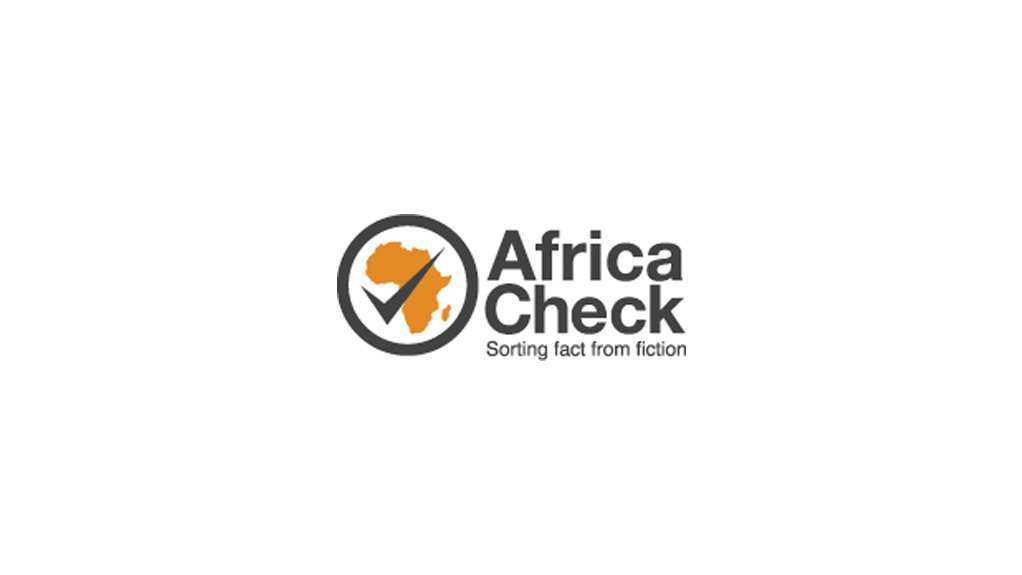While debating Kenya’s new curriculum, the director of a local education non-profit made a claim about how many final-year high school students fail national exams.
“Every year for the last four or so years, 70% of our form 4 leavers get a D+ and below,” Dr Emmanuel Manyasa said.
He is the executive director of Usawa Agenda, which promotes better access to education.
Manyasa was on With All Due Respect on 29 June 2021, a talk show on private Kenyan broadcaster NTV. He argued that the system being phased out had many shortcomings.
The new competency-based curriculum is meant to better align student skills with careers and reduce the emphasis on examinations.
But do seven in every 10 Kenyan high school students just scrape by? We checked.
Majority of students score poorly
Manyasa told Africa Check that the data he used to make the claim was “accurate according to KNEC KCSE examination results for 2017 to 2019”.
KNEC, the Kenya National Examinations Council, oversees public exams in the country, including the Kenya Certificate of Secondary Education, the final school-leaving exam.
For data on form 4 results, Dr Grace Bunyi, an associate professor at Kenyatta University’s school of education in Nairobi, referred us to the national exams council. She said the share of students scoring low grades was “quite high”.
KNEC has a summary of the 2020, 2019 and 2018 KCSE results on its website, while earlier results can be found in the economic survey published by the Kenya National Bureau of Statistics annually.
We collated KCSE results from 2015 to 2020. In the four years from 2015 to 2019, only once, in 2017, did 70% score a grade of D+ or lower. In 2018 some 67.6% scored this grade, further declining to 61% in 2019 and 55^% in 2020.
Dr Maina Gioko is the head of the Professional Development Centre at the Aga Khan Academies and based in Kenya’s coastal city of Mombasa. He disagreed that 70% of high school students scored this grade. “It can’t be D+,” he said.
John Mugo, the executive director of Zizi Afrique Foundation, an education- focused organisation in Kenya, also disagreed with the claim. “No, 70% is too high. Maybe from C- and below,” he said. The examinations council told Africa Check that a C- grade ranges from 29 to 35 points out of a total of 84, although previous reports and guidelines have placed the range at 32 to 38 points.
Both analysts’ assessments are reflected in the data.
Gioko told Africa Check that the difference between C- and D+ is “borderline”. There were a “myriad” of reasons why candidates attain these lower grades in examinations, he said. Focus should be on learning, not delivery of teaching – expert. Source: Economic Survey and Ministry of Education
One was a focus by secondary schools on “the so-called high performers” so as to enhance the schools’ reputations, to the detriment of lower-performing students.
A more significant issue was how instruction was done in schools. “The focus of the inspectorate is on the teaching, on the one person who is broadcasting. But are the learners learning?” Gioko said.
He referred us to 2018 data from the United Nations Educational, Scientific and Cultural Organization (Unesco) that showed that at the end of primary education, only 44% of Kenyan school children achieved minimum proficiency in reading.
The data is based on a 2020 report by the KNEC, which used data from 2018. It found that only 29% of class 7 pupils achieved minimum competency in mathematics. The percentage reaching competency in English was 44%, in Kiswahili 37% and in science 41%.
Infrastructure and support networks crucial for school’s success
Andiwo Obondoh is an adviser at the Regional Education Learning Initiative which works to share knowledge among education-focused organisations in East Africa.
The problem was not the grades as not everyone could get the same mark, Obondoh told Africa Check.
“It speaks a lot about the way we examine and how we run the curriculum,” he said. “But [what] if we focus on what [the students] come out with at the end of four years, are they trainable, and do we have opportunities to be able to absorb them for further development?”
Obondoh added that management, resources and other support also affect performance, with top performers predictably coming from particular schools.
“Infrastructure is important in terms of teachers, facilities, learning and teaching resources,” he said. “Schools that do well also have a very good network of supporters. It could be alumni or community leaders.”
Conclusion: Claim that 70% of high schoolers score D+ and less incorrect
At a TV debate on Kenya’s new schools curriculum, education expert Dr Emmanuel Manyasa claimed that “every year for the last four or so years, 70% of our form 4 leavers get a D+ and below”.
The data shows that in only one of the four years in question was this the case, with this share declining in subsequent years.
We therefore rate the claim incorrect. Several analysts however said that the quality of learning was in question and that management of schools and their infrastructure mattered.
Written by Vincent Ng'ethe, Kenya deputy editor, Africa Check
EMAIL THIS ARTICLE SAVE THIS ARTICLE
To subscribe email subscriptions@creamermedia.co.za or click here
To advertise email advertising@creamermedia.co.za or click here











